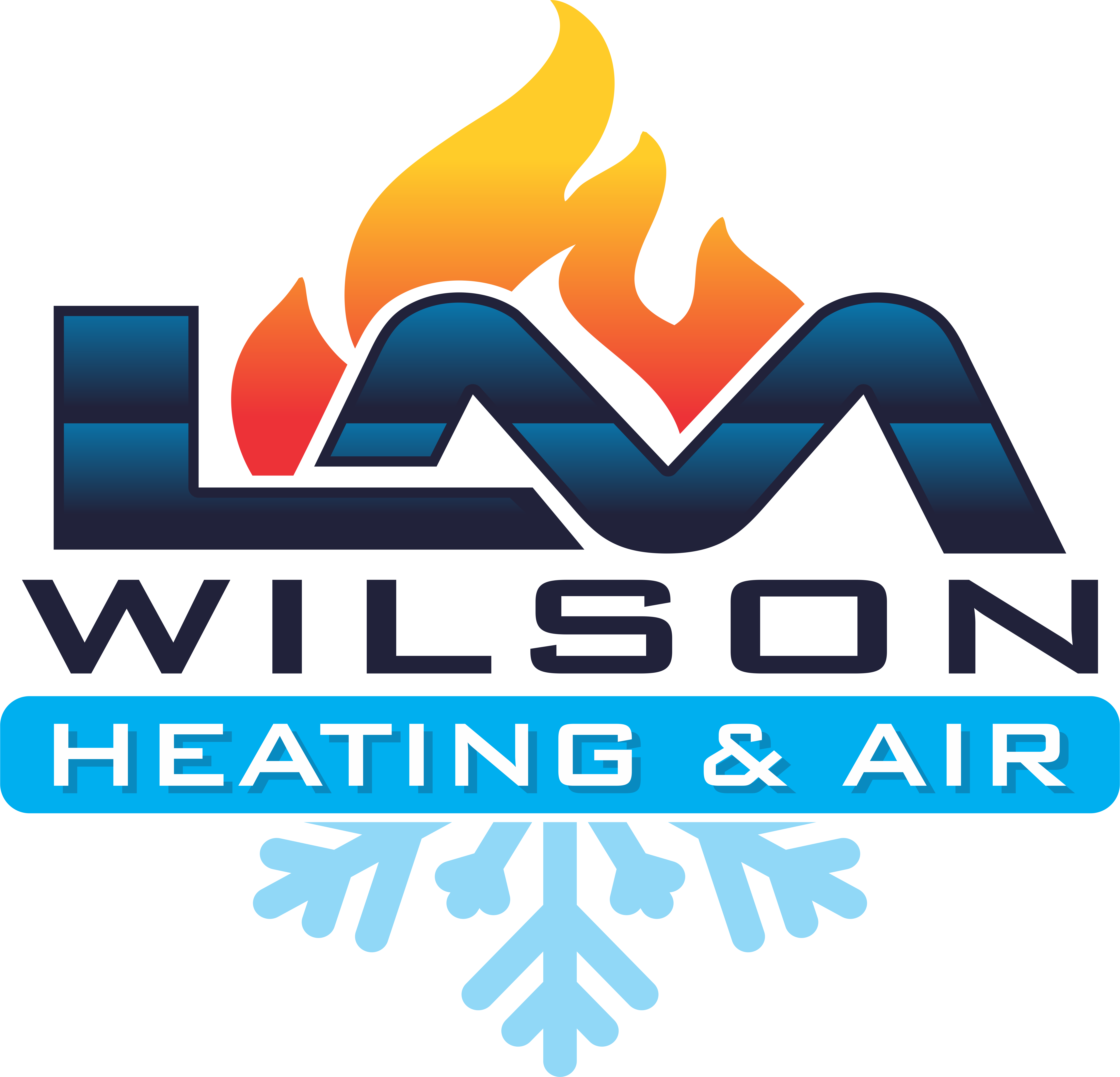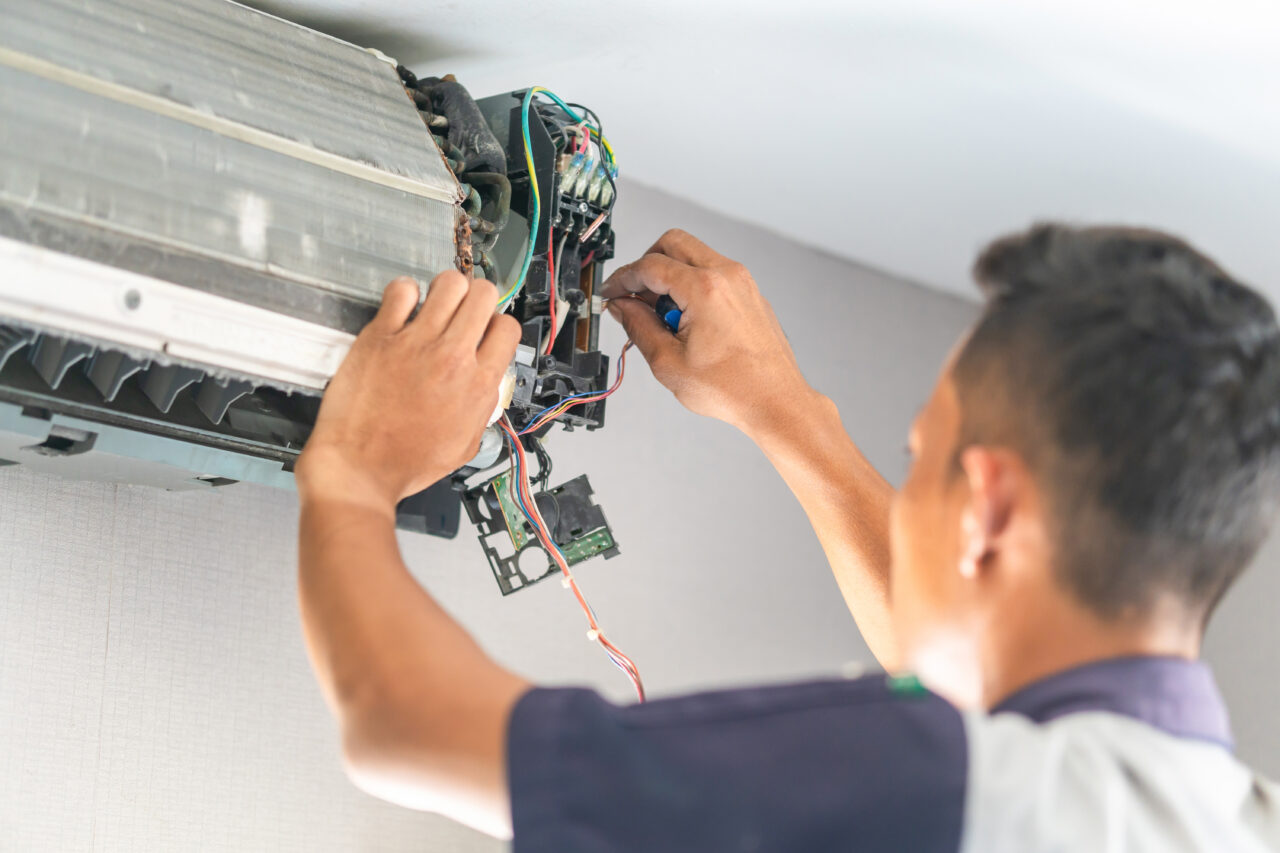When it comes time to replace your air conditioning unit, the cost can be a significant concern. At LM Wilson Heating & Air, we understand that purchasing a new AC unit is a substantial investment. Several factors influence the total cost of a new air conditioning unit, and understanding these factors can help you make an informed decision that fits your budget and cooling needs.
In this comprehensive guide, we’ll delve into the various elements that affect the cost of a new air conditioning unit. From the type and size of the unit to installation complexities and energy efficiency, we’ll cover all the bases to help you navigate this important purchase.
Type of Air Conditioning Unit
The type of air conditioning unit you choose is one of the primary factors affecting the cost. There are several types of AC units, each with different price ranges and features:
Central Air Conditioning – Central air conditioning systems are among the most common in residential settings. They consist of a central unit that cools air and distributes it through ducts to various rooms. The cost of central AC units varies widely based on capacity, efficiency, and brand. Generally, they range from $3,000 to $7,000, including installation.
Ductless Mini-Split Systems – Ductless mini-split systems offer flexibility by allowing you to cool specific areas or rooms independently. They are ideal for homes without existing ductwork. While they tend to be more expensive per unit compared to central AC systems, typically ranging from $2,000 to $5,000 per zone, they offer energy efficiency and targeted cooling.
Window Units – Window air conditioners are a cost-effective option for cooling single rooms. These units are relatively inexpensive, usually between $150 and $750. However, they are less efficient and less powerful than other types of AC systems, making them suitable only for small spaces.
Portable Air Conditioners – Portable air conditioners are similar to window units but can be moved from room to room. They are also relatively affordable, typically ranging from $200 to $600. While convenient, they are generally less efficient than other cooling options.
Size of the Unit
The size, or cooling capacity, of the air conditioning unit, is a crucial factor in determining cost. AC units are measured in tons or BTUs (British Thermal Units), with higher BTUs indicating greater cooling capacity.
Calculating Cooling Needs – The size of the unit needed depends on the square footage of the area to be cooled. An HVAC professional can perform a load calculation to determine the appropriate size for your home. Undersized units will struggle to cool your home efficiently, while oversized units can lead to higher costs and humidity issues.
Cost Implications – Larger units with higher BTUs or tonnage are more expensive. For example, a 1.5-ton unit may cost around $3,000, while a 5-ton unit could exceed $7,000. It’s essential to get the right size to balance cost and performance.
Energy Efficiency
Energy efficiency is a significant factor in both the upfront cost and long-term savings of a new air conditioning unit. More efficient units typically have higher initial costs but can save you money on energy bills over time.
SEER Ratings – The Seasonal Energy Efficiency Ratio (SEER) rating measures the efficiency of an air conditioning unit. Higher SEER ratings indicate better energy efficiency. While units with higher SEER ratings tend to be more expensive, they offer lower operating costs. For instance, upgrading from a SEER 13 to a SEER 16 unit can result in significant energy savings.
Cost of High-Efficiency Units – High-efficiency units with SEER ratings of 16 and above can cost between $1,000 and $2,000 more than standard units. However, many homeowners find the investment worthwhile due to the long-term savings on energy bills.
Brand and Model
The brand and model of the air conditioning unit can also impact the cost. Well-known, reputable brands often come with higher price tags due to their reliability, performance, and warranty offerings. Some top brands in the HVAC industry include:
- Trane
- Carrier
- Lennox
- Rheem
- York
Higher-end brands like Trane and Lennox may cost more upfront but are known for their durability and energy efficiency. Mid-range brands like Carrier and Rheem offer a good balance of cost and performance, while budget brands provide affordability but may lack advanced features and long-term reliability.
Installation Costs
Installation is a critical factor in the total cost of a new air conditioning unit. Professional installation ensures that your unit operates efficiently and lasts longer. Several elements can influence installation costs:
Complexity of Installation – The complexity of the installation process can vary based on factors such as the presence of existing ductwork, the location of the unit, and any necessary modifications to your home’s electrical system. Complex installations may require additional labor and materials, increasing the overall cost.
Labor Rates – Labor rates for HVAC professionals can vary by region and company. It’s important to get quotes from reputable contractors to understand the full scope of installation costs. On average, installation can add $1,000 to $3,000 to the total cost of your new AC unit.
Additional Components – Installation may also require additional components such as new ductwork, thermostats, or air handlers. These components can add to the overall cost but are necessary for a properly functioning system.
Home Size and Layout
The size and layout of your home play a significant role in determining the cost of a new air conditioning unit. Larger homes require more powerful units with higher cooling capacities, which are more expensive. Additionally, multi-story homes or homes with complex layouts may need multiple units or zoning systems to ensure even cooling.
Zoning Systems
Zoning systems allow you to control the temperature in different areas of your home independently. While zoning can enhance comfort and efficiency, it adds to the initial cost. Zoning systems can range from $2,500 to $5,000, depending on the number of zones and complexity.
Additional Features and Upgrades
Modern air conditioning units come with a variety of features and upgrades that can enhance comfort, convenience, and efficiency. While these features add to the cost, they offer significant benefits:
Smart Thermostats
Smart thermostats allow you to control your HVAC system remotely via smartphone apps. They can learn your preferences and adjust settings automatically to optimize energy use. Smart thermostats typically cost between $200 and $300, plus installation.
Air Quality Improvements
Some AC units offer advanced air filtration systems, dehumidifiers, or UV lights to improve indoor air quality. These upgrades can cost an additional $500 to $1,500 but can be beneficial for households with allergies or respiratory issues.
Variable-Speed Compressors
Variable-speed compressors allow the AC unit to adjust its output to match the cooling needs of your home, improving efficiency and comfort. Units with variable-speed compressors are more expensive but offer superior performance and energy savings.
Warranty and Maintenance
The warranty and maintenance requirements of your new air conditioning unit can also affect the overall cost. Extended warranties and maintenance plans can provide peace of mind and protect your investment but come at an additional cost. Higher-end units often come with longer and more comprehensive warranties, which can add to the upfront cost. It’s important to consider the value of warranty coverage when comparing units. Regular maintenance is crucial for the longevity and efficiency of your AC unit. Many HVAC companies, including LM Wilson Heating & Air, offer maintenance plans that include annual inspections, tune-ups, and priority service. These plans can cost between $150 and $300 per year but can save you money on repairs and extend the life of your unit.
Purchasing a new air conditioning unit is a significant investment that requires careful consideration of multiple factors. By understanding the type of unit, size, energy efficiency, brand, installation costs, home size, additional features, and warranty options, you can make an informed decision that meets your cooling needs and budget.
At LM Wilson Heating & Air, we are committed to helping our North Carolina customers navigate the complexities of choosing a new air conditioning unit. Our experienced team is here to provide expert advice, professional installation, and reliable maintenance to ensure your home stays comfortable year-round.
If you’re considering a new air conditioning unit, contact LM Wilson Heating & Air today in Burlington, NC to schedule a consultation. We’ll help you find the best solution for your home and ensure a seamless installation process. Call us at (336) 663-1370 to learn more about our services and to request a free estimate.
Investing in a new air conditioning unit is not just about staying cool; it’s about improving your home’s energy efficiency, reducing your environmental impact, and ensuring long-term comfort for you and your family. Let LM Wilson Heating & Air be your trusted partner in this important decision.


